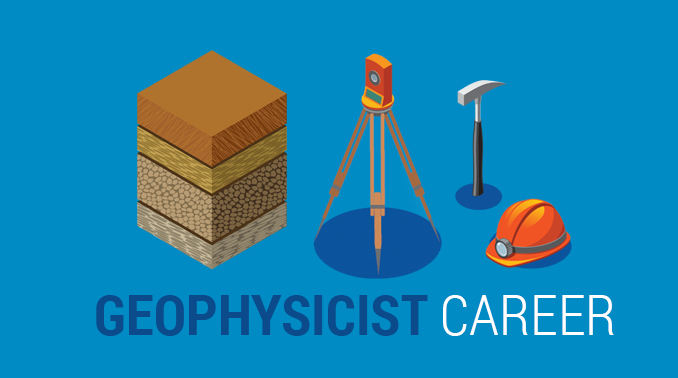All Categories
Featured
Table of Contents
Geophysicist, Exploration - Job Descriptions in Cardup Aus 2020

Other possible geophysicist majors that aren't geophysics or geoscience include: Climatic sciences and meteorology Chemical and physical oceanography Earth science Environmental science Hydrology and water resources science Products science By earning any geophysicist degree, and by taking the necessary geology courses, you need to get approved for an entry-level position as a geoscientist or geophysicist.
Eventually, students must discover: a branch of geology that takes a look at the different elements of minerals, including chemical structure, internal crystal structure, and physical residential or commercial properties. the research study of rocks and the procedures and conditions that form and change them in time. There are a few neighborhoods in this branch of geology, including igneous, metamorphic, and sedimentary rocks.

This field analyzes structural rock functions such as cleavage, faults, joints, and small folds. They need to also find out the computer system skills necessary to: analyze data produce digital models and maps operate geoscientists' software application Students need to likewise make the most of all chances to acquire real-world experience. Ambitious geophysicists ought to anticipate to hang out knowing: in the class in the field in labs Obviously, skills taught in the classroom are extremely crucial for aiming geophysicists.
Geophysical Services in Ballajura Western Australia 2022
For example, geoscientists spend a great deal of their time outside when operating in the field, so they should have "outside abilities" like outdoor camping and operating boats, airplane, and other vehicles. Due to the fact that they invest so much time in remote places, it's essential that geophysicists also have the physical stamina to bring needed equipment on their walkings to areas of study.
The job uses: a high mean and leading revenues a high rate of personal complete satisfaction among geophysicists low work stress favorable job outlook Additional details on incomes potential and task outlook is detailed below. For trainees seeking to land an entry-level role as a geoscientist or geophysicist, it takes four years, or the time needed to complete a bachelor's degree in geophysics or an associated discipline.
Some research positions in geophysics need postgraduate degrees. If you plan to teach at a college or university, you must earn a Ph. D. in geophysics or a related field. The time it requires to make a Ph. D. differs by organization and program, however it normally takes 4 to six years beyond the bachelor's degree.
Course: Basics In Geophysical Surveying in Joondanna Australia 2022
Most companies need prospects to have a bachelor's degree in geophysics or a closely associated discipline for all entry-level positions. As an outcome, there's no way around the degree requirements for becoming a geophysicist.
Currently, 31 states require licensing for geologists, although licensing is not always required, specifically for entry-level work. The states that do concern licenses utilize the Fundamentals of Geology Examination (FGE), which is administered through the National Association of State Boards of Geology (ASBOG). Now that you understand which degree for geophysicist tasks you require, you'll need to land a job, and it is essential to learn just how much cash you can make in this profession.
According to BLS, the median annual wage for geoscientists is $93,580. The most affordable 10% of earners earn less than $52,000, while the highest 10% make more than $201,000 annually. Earnings vary by industry type and geographic location. According to BLS, specific industries offer higher earnings for geoscientists, and sometimes, they use higher-than-average profits.
Geophysicist Salary And Job Description 2023 in Brentwood Australia 2021
In fact, mining, quarrying, and oil and gas extraction uses over $32,000 more annually than the average annual wage for this profession. The federal government, too, offers over $10,000 more in incomes than the national average for geoscientists. In addition to market type, geographical area can considerably impact revenues for this profession.

The top-paying states and their yearly mean incomes, according to the BLS, consist of: Texas $166,720 Oklahoma $149,630 Pennsylvania $120,590 Hawaii $120,130 Colorado $107,260 These 5 top-paying states offer much greater wages than the average for this occupation. Earnings for geoscientists in Texas are over $73,000 greater than the national average.
It should come as no surprise that many of these high-paying areas remain in Texas and Oklahoma, but some are found in California, Louisiana, and Colorado. The leading 10 highest-paying metro areas for geoscientists are: Houston-The Woodlands-Sugar Land, Texas: $188,400 Tulsa, Oklahoma: $186,490 Midland, Texas: $167,040 Odessa, Texas: $147,080 Oklahoma City, Oklahoma: $145,350 Bakersfield, California: $130,080 Urban Honolulu, Hawaii: $124,470 New Orleans-Metairie, Louisiana: $121,030 Washington-Arlington-Alexandria, DC, VA, MD, WV: $120,180 Denver-Aurora-Lakewood, Colorado: $116,910 For some geoscientists and geophysicists, residing in a metro city is not as attractive as living in a smaller community.
Latest Posts
Geological And Geophysical Surveys in Mullaloo Western Australia 2023
Geophysical Surveys & Mapping - Ecs Limited in Rockingham WA 2020
Marine Geophysicist in Iluka Aus 2020